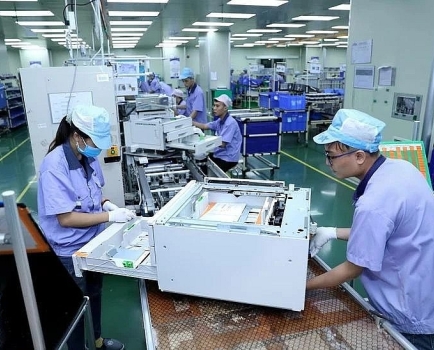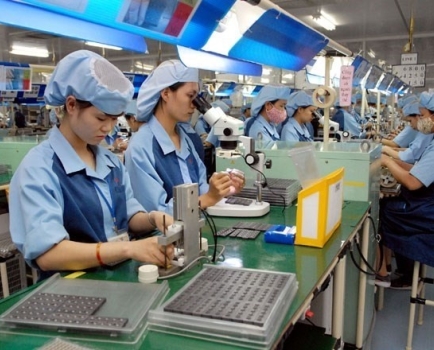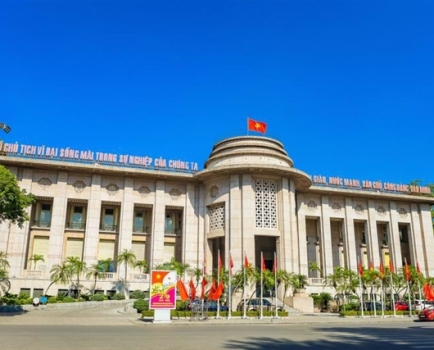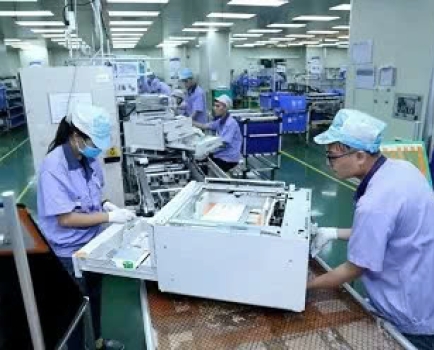Businesses concerned about overtime hour draft law
Wed, 30 Oct 2019 14:16:00 | Print | Email Share:
Businesses and experts are still concerned over the impact on production of overtime hours that are not increased for seasonal jobs.
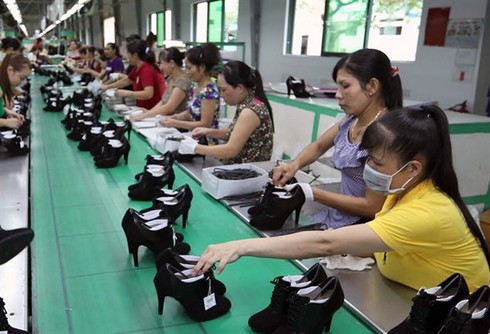
Workers make shoes at the Taiwan-invested My Phong Shoes
and Leather Company in Tra Vinh Province.
Do Thuy Huong, a representative of the Vietnam Electronic Industry Association, said electronics was an industry that had applied advanced technologies.
“However, machines could not replace humans,” she said.
At some times, businesses needed labourers to work overtime, while there were other periods employees had to be sent home due to a lack of orders, she said.
Huong suggested not limiting the number of overtime hours by week or month, but by year as a range of foreign direct investment (FDI) enterprises, accounting for a large proportion of exports, had violated regulations on overtime hours.
Chu Van An, deputy head of Minh Phu Seafood Corporation, said the shrimp and fish sectors and agriculture in general were seasonal.
During the shrimp harvest season, if the factory received all local farmers’ shrimp to process, it would violate regulations on overtime hours, he added, online newspaper Cafef.vn reported.
If a business violated regulations on overtime hours, partners would not buy its products, An said.
He also said businesses were not interested in letting labourers work overtime, because they had to pay 150-300 per cent extra for each overtime hour, depending on the overtime work on a normal day or holiday, while the price of products that businesses sold to customers was fixed.
An said there were 3-5 months each year the shrimp sector needed labourers to work overtime, in other months, labourers even worked only five hours per day.
The corporation has four shrimp processing factories. To run the factories at full capacity, they need about 20,000 labourers, however, they only have about 13,000 labourers. Therefore, An suggested increasing to a maximum of 500 overtime hours each year and not limiting overtime by month.
Bui Sy Loi, vice chairman of the National Assembly’s Committee for Social Affairs, said the draft revised Labour Code has two options for overtime. The first was to stick with current regulations – a maximum of 300 overtime hours per year. The second option was to allow 400 overtime hours per year for five special sectors, namely garments, textiles, seafood, leather shoes and electronics.
Loi said he supported the option of increasing overtime hours to 400 each year for five special sectors. But it should be a voluntary agreement between the employer and employees to ensure the health of labourers.
“In a country where labour productivity is not high, wages are rising faster than labour productivity, we need to calculate carefully,” he said.
This revised law also raised the question of creating a law to boost labour productivity, he said.
Former deputy minister of Labour, Invalids and Social Affairs Nguyen Minh Huan said debates over overtime hour were not new and there were always two contrary opinions every time the law was revised.
This time, the draft suggested increasing overtime hours to 400 each year for some special sectors. However, some National Assembly deputies did not agree with, he said.
“It will cause difficulties for businesses because the characteristics of some sectors such as seafood and textiles are seasonal,” he said.
The revised Labour Code is expected to be voted on November 20 by National Assembly deputies.
By: VNS/VNA/VOV
---------------------------------------------
Same category News :



